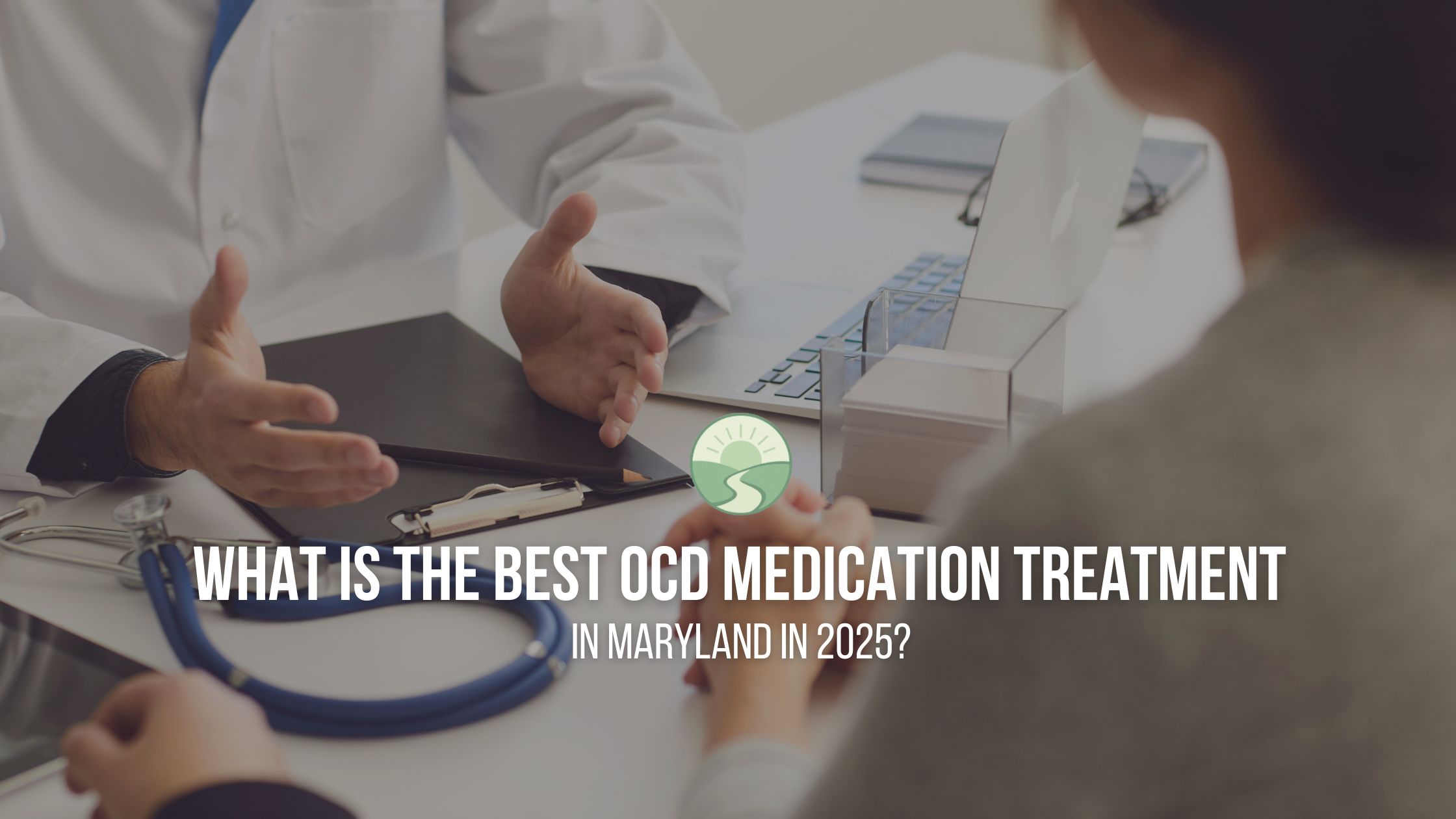Obsessive-Compulsive Disorder (OCD) continues to affect countless individuals across Maryland, often disrupting their daily lives, relationships, and work. As we move into 2025, people are increasingly seeking evidence-based, personalised, and sustainable treatment options. Whether you’re newly diagnosed or have been battling OCD for years, understanding the best OCD medication treatment in Maryland can be the turning point in your journey toward mental wellness.
Unlike past decades, treatment today isn’t just about suppressing symptoms—it’s about reclaiming your life. And the path starts with consulting an experienced psychiatrist, not a general practitioner, who can help tailor your treatment based on your unique symptoms, biological response, and lifestyle needs.
OCD Medication Treatment in Maryland
OCD is more than just repetitive behaviors—it’s a neurological disorder that involves disruptions in serotonin transmission. This is why medication remains a cornerstone of treatment for many individuals.
The best OCD medication treatment in Maryland typically involves a class of medications known as Selective Serotonin Reuptake Inhibitors (SSRIs). These include:
- Fluoxetine (Prozac)
- Sertraline (Zoloft)
- Fluvoxamine (Luvox)
- Paroxetine (Paxil)
- Escitalopram (Lexapro)
Each of these SSRIs has shown strong evidence in reducing OCD symptoms. However, response times may vary, often requiring 10 to 12 weeks for full effect. This is longer than typical depression treatment, so patience and expert monitoring are key.
In cases where SSRIs alone aren’t effective, Augmentation Strategies are introduced, such as:
- Low-dose antipsychotics (e.g., Aripiprazole or Risperidone)
- Glutamate modulators like Memantine (used off-label)
The goal? Achieving full or near-full remission—not just symptom management.
How Psychiatric Care is Evolving in Maryland?
The delivery of psychiatric care has significantly transformed over recent years. In 2025, virtual psychiatric care in Maryland is not only common but also highly effective. Patients in areas like Frederick MD, or Howard County can now consult board-certified psychiatrists from home, receiving ongoing support without the stress of commuting.
Some key advancements include:
- Telepsychiatry sessions for medication management
- Online symptom tracking integrated with treatment plans
- Immediate access to psychiatric help in urgent situations
This modern shift makes seeking OCD medication treatment in Maryland easier and more accessible than ever.
Finding the Right Psychiatrist for OCD: What Should You Look For?
While general practitioners may understand basic anxiety treatment, OCD is a complex condition that demands a psychiatrist’s expertise. A psychiatrist trained in OCD understands the nuances of medication dosages, how to handle resistance, and when to integrate therapy with pharmacological care.
When seeking a provider, especially around Baltimore, Howard County, or Frederick MD, look for:
- Board certification in psychiatry
- Experience treating OCD specifically
- Willingness to combine medication with Cognitive Behavioral Therapy (CBT)
- A collaborative approach toward patient preferences
Many Maryland residents now search for a Baltimore psychiatrist near me or consult a Frederick MD online psychiatrist to get started promptly.
The Role of Therapy Alongside Medication
Medication can significantly reduce intrusive thoughts and compulsions, but therapy helps retrain the brain. The most effective treatment combines medication with Exposure and Response Prevention (ERP), a type of CBT designed for OCD.
Maryland’s best mental health professionals recognise that a dual approach leads to better outcomes. While psychiatrists manage medication, they often refer patients to in-house or partnered ERP specialists within local centers like a Howard County mental wellness center.
This integrated approach ensures you aren’t just managing symptoms—you’re actively rewiring your thought patterns.
What Sets 2025 Apart?
One of the most exciting shifts in 2025 is the use of personalised medication plans based on genetic testing and individual neurochemistry. Some psychiatrists in Maryland now offer pharmacogenetic testing, which can help predict how your body might react to certain medications.
Other 2025 trends include:
- AI-powered symptom tracking apps
- Remote pill dispensing devices with reminders
- Collaborative care models connecting psychiatrists with therapists and family members
Such advancements empower patients and remove guesswork, making OCD medication treatment far more precise and manageable.
How to Know If You Need OCD Medication in the First Place?
It’s important to know when medication should be considered. While mild OCD may respond well to therapy alone, moderate to severe cases usually require medication support.
Signs you might benefit from OCD medication include:
- Intrusive thoughts that interfere with daily activities
- Spending more than an hour a day on compulsions
- Emotional distress or anxiety due to uncontrollable obsessions
- Failed previous attempts at therapy alone
If these sound familiar, it may be time to talk to a Maryland-based psychiatrist who specializes in OCD.
Your Next Step Toward Wellness
Living with OCD doesn’t have to be a life sentence. In 2025, Maryland will offer more effective, accessible, and personalised treatment options than ever before. From in-person consultations in Howard County to virtual psychiatrists in Maryland serving all regions, there’s no shortage of support.
Whether you’re in Baltimore, Frederick, or beyond, finding the best OCD medication treatment in Maryland is the key to unlocking a life free from obsessive patterns and mental clutter.
If you or a loved one is struggling, don’t wait. Reach out today and let the healing begin.
Explore trusted, board-certified psychiatric support and medication treatment options by visiting Renewed Hope Mental Wellness.
Key Takeaways:
- SSRIs remain the first-line treatment for OCD, often supported with augmentation medications.
- Medication must be prescribed and monitored by a qualified psychiatrist, not a general practitioner.
- Virtual psychiatric care is growing rapidly in Maryland, improving accessibility across Frederick, Baltimore, and Howard County.
- Pharmacogenetic testing and personalized care models will make OCD treatment more precise in 2025.
Combining ERP therapy with medication leads to higher long-term success rates.

